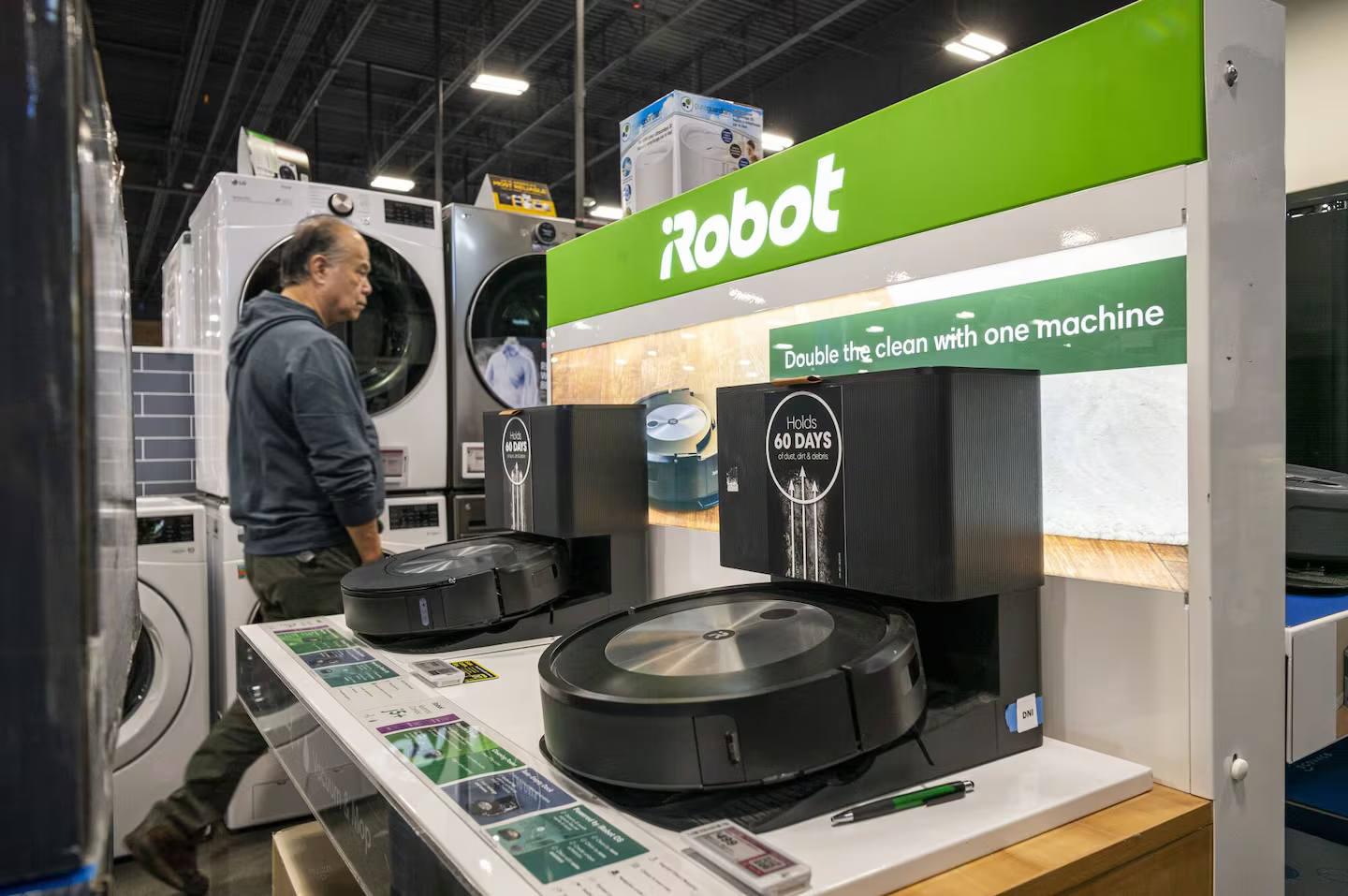iRobot: The Company That Invented a Market — and Now Faces Its Exit
A Company That Changed Consumer Robotics
For more than two decades, iRobot occupied a rare position in consumer technology. When the Roomba launched in 2002, it didn’t just introduce a new appliance — it normalized the presence of robots in everyday domestic life. Over time, the company sold more than 50 million Roombas, according to its own corporate history, making it one of the most successful robotics products ever released.
It is difficult to overstate what this meant: iRobot didn’t simply participate in the home robotics market it created it.
But the company that built the category now stands on the edge of collapse.
A Business Under Acute Financial Pressure
In recent filings, iRobot disclosed that it had less than $25 million in cash remaining and more than $205 million in debt, with no further access to credit. Without new financing, the company may default as soon as December — a situation that could lead to bankruptcy and leave shareholders with no recovery.
This is not a temporary setback. It is a liquidity crisis with direct operational consequences. The company’s own language acknowledges “substantial doubt” about its ability to continue as a going concern.
The question is no longer whether iRobot is struggling. The question is whether iRobot will still exist in a recognizable form next year.
How Competitors Redefined the Robot Vacuum Market
The story of how iRobot reached this point does not begin with this quarter or the last. It begins with a slow shift in global manufacturing and consumer expectations.
Throughout the late 2010s, manufacturers in China — particularly Roborock, Ecovacs, Dreame, and Xiaomi — began to challenge Roomba’s dominance. At first, these products seemed derivative. But they were built in supply chains optimized for rapid iteration and cost efficiency, and their performance improved quickly.
By the early 2020s, independent testing — including the widely followed reviews from The New York Times / Wirecutter — showed that these competitors were often faster, more precise, and less expensive than Roomba models.
iRobot, meanwhile, was constrained by a legacy product platform that had been built for durability and modular repair — admirable design values that unfortunately limited the company’s ability to keep pace with rapid-cycle innovation.
The category matured into a price-competitive commodity market, and iRobot continued to position Roomba as a premium product. That gap widened year over year.
The Deal That Might Have Changed Everything
In 2022, Amazon agreed to acquire iRobot for $1.7 billion, a deal that would have paid off debt and integrated Roomba into the Alexa smart home ecosystem. But in early 2024, the deal collapsed after antitrust scrutiny in the U.S. and Europe.
This was the inflection point. Without Amazon’s balance sheet and infrastructure, iRobot was left exposed. Longtime CEO Colin Angle stepped down. The company laid off large portions of its workforce. Research and development spending fell sharply — just as global competitors accelerated their product cycles.
The opportunity to reset the company’s strategic direction disappeared at the exact moment it was most needed.
A Product That Lost Its Identity
The most recent Roombas are not bad products. In many ways, they are more technically capable than earlier models. But they are also less distinct, the result of development increasingly outsourced to a manufacturing partner in Shenzhen.
A recent review in The New York Times described the new lineup as “technically improved, yet largely indistinguishable from the glut of cheaper competitors that overtook the company in the first place.”
The Roomba lost the qualities that made it feel personal — the repairability, the simplicity, the sense of presence. It became another product in a crowded category it once defined. When a brand loses its identity, price becomes the only differentiator. iRobot was never built to win a price war.
What Comes Next
Unless financing appears or a buyer steps in, iRobot may not survive as an independent company. The Roomba brand likely will — there is too much name recognition and too large an installed customer base for it to vanish entirely. But the corporation behind it, the one that once represented the future of home robotics, may not continue in anything like its previous form.
This is not the failure of a product. It is the failure of a transition.
iRobot proved the demand for consumer robotics. It legitimized the idea of living alongside machines. But once the market matured, the advantage shifted to companies that could innovate faster, manufacture more efficiently, and operate on thinner margins.
iRobot created the category. The category outgrew iRobot.
The era it began will continue, but likely without the company that started it.


